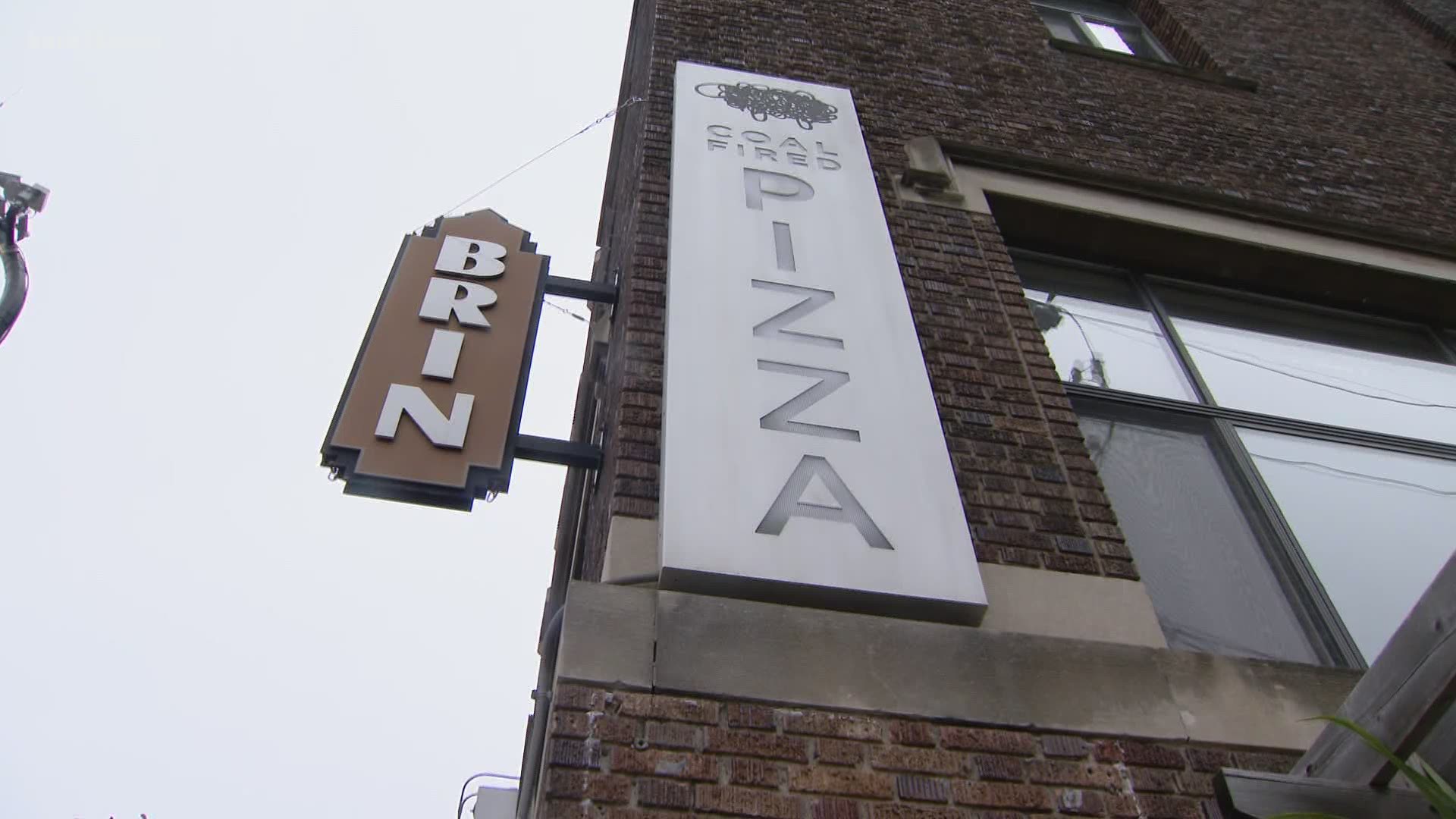MINNEAPOLIS — With a half-dozen picnic tables overlooking the intersection of North Sixth Street and Washington Avenue, Black Sheep Pizza held strong in the North Loop during the warm summer months.
But as temperatures plummeted into the forties on Tuesday, founder Jordan Smith felt his fortunes changing.
“I think it’s going to be a very difficult winter,” Smith said. “This is the first time ever, I’m scared. I’m scared of what the outcome could be.”
Two of Smith’s three locations in the Twin Cities lose money on a weekly basis, he said, while the third barely breaks even.
Even with strong takeout demand, the loss of patio service during the chilly fall and winter months could spell serious trouble for Black Sheep and other restaurants, who have used outdoor seating as a lifeline since Gov. Walz allowed the industry to partly reopen back in June.
“Our plan is to survive until things hopefully loosen up,” Smith said. “We want to make it to spring.”
For many restaurants and bars, makeshift options like heat lamps and tents will not be financially feasible or practical, leaving them to suffer through the upcoming winter months with limited indoor service. To lift restaurants after patio season, Hospitality Minnesota sent a letter to Gov. Walz last week, asking him to recommend a move to Phase IV in order to increase restaurant capacity to 75% and boost party sizes to six people (or eight for families).
Liz Rammer, the president and CEO of Hospitality Minnesota, told the Walz administration that more than 40% of hospitality businesses might risk closure without “swift action,” according to survey results.
“It is not an exaggeration,” Rammer said, “to state that many Minnesotan lives and livelihoods hang in the balance.”
Andrew Zimmern, the longtime Twin Cities chef and television personality, pushed for $120 billion in federal COVID-19 relief specifically for restaurants in an interview with KARE 11 on Tuesday. He urged Congress to pass the “RESTAURANTS Act”, which would infuse local and independent restaurants with grant money to cover expenses like payroll and rent.
“Without that, I fear we’re facing an extinction event for independent restaurants nationally and here in the state of Minnesota,” Zimmern said. “They’re just not going to be able to hang on.”
Touted as a more targeted and comprehensive solution for restaurants than the ongoing Paycheck Protection Program through the Small Business Administration, the “RESTAURANTS Act” has some bipartisan support with a Democratic sponsor in the U.S. House and a Republican sponsor in the U.S. Senate. Three Minnesota representatives – Democrats Angie Craig, Betty McCollum and Dean Phillips – have signed on as co-sponsors to the House version. Democratic Senator Amy Klobuchar co-sponsors the bill in the Senate.
The Independent Restaurant Coalition has pushed Congress to include the funding in the next COVID-19 stimulus package.
“If we don’t get that money now – not tomorrow, but now – we’re just going to see more and more closings,” Zimmern said.
In the Twin Cities, several high-profile restaurants have already shut down permanently after struggling through COVID-19. These include Bellecour in Wayzata, The Bachelor Farmer in the North Loop and Muddy Waters in Uptown.
At Black Sheep Pizza, owner Jordan Smith wants to avoid the same fate. Although he likely cannot build winter-friendly outdoor seating in the wind tunnel of Washington Avenue, he feels optimistic that he can hunker down with indoor service and takeout over the next several months.
As long as he can make it to the spring of 2021 with enough money in the bank, Smith sees a future for himself on the sagging Twin Cities restaurant scene.
“At the end of the day,” Smith said, “it’s up to all of us to hang on as best we can.”

